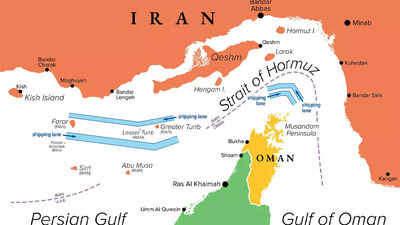CII’s land reforms pitch: Industrial body calls for GST-like Council, uniform stamp duty; integrated land authorities and digitization also proposed to boost investment

The Confederation of Indian Industry (CII) has proposed a series of comprehensive land reforms to bolster India’s position as a global manufacturing hub. Key among these proposals is the creation of a GST-like Council to facilitate coordinated and consensus-based land reforms across the country. CII suggests standardizing stamp duty rates to a uniform 3 to 5 percent nationwide to enhance investment attractiveness. CII emphasized that India’s stable policy framework, robust industrial capabilities, large domestic market, and young workforce make it a prime investment destination, despite challenges like protectionism and trade wars.To capitalize on these strengths, CII advocated for a forward-looking competitiveness agenda, including significant land reforms.“The global landscape is undergoing seminal transformations, and trade and investment patterns are being reshaped by factors beyond cost. India has long harboured the goal of becoming a leading global hub for manufacturing. To successfully capitalise on these emerging opportunities and march towards the goal of Viksit Bharat by 2047, India must adopt a comprehensive and forward-looking competitiveness agenda, including factor market reforms such as land reforms,” said CII, as quoted by PTI. The industry lobby has identified a significant challenge in the form of multiple authorities involved in land-related processes at the state level. To address this issue, the Confederation of Indian Industry (CII) proposed the creation of Integrated Land Authorities in each state. These authorities would serve as centralized agencies responsible for managing allotments, conversions, dispute resolution, and zoning, streamlining the process for all stakeholders. CII has also emphasized the need for full digitization of the land conversion process. This would include the use of digitally signed certificates and QR code-enabled third-party verification to enhance transparency and reduce opportunities for corruption. Additionally, CII pointed out the high and inconsistent stamp duty rates across India, which add to the cost and unpredictability for investors. To address this, they recommend standardizing these charges to a uniform range of 3 to 5 percent across all states, making transactions more affordable and predictable. Furthermore, CII has urged states to adopt a conclusive titling system. This would ensure clear ownership of land, significantly reducing litigation risks and unlocking land for investment opportunities. These measures, among others, aim to create a more efficient and investor-friendly land management system.CII further highlighted the need for a conclusive titling system to ensure clear land ownership, thereby reducing litigation risks and unlocking land for investment. It also points out that while initiatives like the India Industrial Land Bank (IILB) are commendable, they need to evolve into a comprehensive national land bank that facilitates land allotment across states through a single digital interface.





